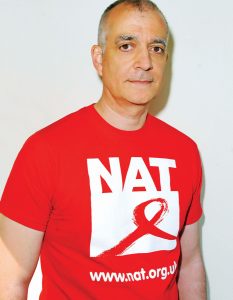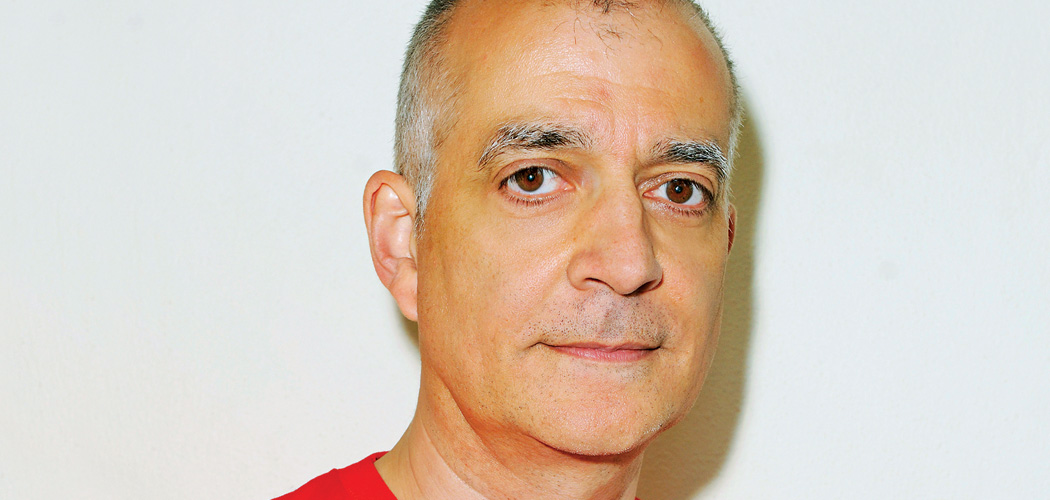The National AIDS Trust’s Director of Strategy, Yusef Azad, explains why now may well be the beginning of the end for HIV in the UK.
It’s been a revolutionary, momentous year in the UK for the gay community and our fight against HIV. 2017 could go down in history as the year we turned the corner and saw the beginning of the end of the epidemic. This World AIDS Day it’s worth reminding ourselves how we got here, and what more there is still to do.
Scroll back a year to 1 December 2016. Where were we? We were just coming to the end of NAT’s legal battle challenging NHS England’s refusal to fund PrEP. This was in effect a refusal to spend money on gay men’s health, despite overwhelming evidence that PrEP is astonishingly effective in preventing HIV. We were confident that PrEP’s introduction would make a decisive difference in our efforts to end the epidemic.
The last couple of years have seen a renewal of the community unity and activism which achieved so much in earlier years. The demonstrations, media articles, petitions, questions in parliament, activist websites such as Prepster and I Want PrEP Now, alongside NAT’s legal victory, ensured that soon after World AIDS Day last year NHS England agreed in the longterm to fund PrEP nationally, and in the shorter term to support a large-scale trial costing £10 million over three years and providing PrEP to at least 10,000 people.
This very welcome step in the right direction was followed by frustrating delays, but in October this year the first clinics participating in the trial opened their doors. We should all celebrate the past 18 months of our community, alongside many others who want PrEP – women, trans people, BME activists – refusing to accept no for an answer and forcing NHS England back to the table.

In addition to this historic campaigning success, there has been a sudden drop in new HIV diagnoses among gay men, reported this year. There was overall a 21% reduction (from 3,570 in 2015 to 2,810 in 2016). And we hear that the larger London clinics have continued to see falls in 2017. This is the first time there has been a decline in diagnoses among gay men since the beginning of the epidemic over 30 years ago. Five of the larger London clinics have been the major contributors to this turnaround – Dean Street, Mortimer Market, St Mary’s, Homerton and St Thomas’ – and those clinics saw a 35% fall in diagnoses.
What’s going right? The key factor has been a massive increase in testing amongst gay men – and not just testing once, but repeat testing. We now also have much faster access to HIV treatment for those who test positive, which means that they very quickly become undetectable and can’t pass HIV on. High rates of condom use amongst gay men have continued and remain important.
And then there is PrEP. Despite the delays in accessing PrEP on the NHS, some gay men have been using PrEP for a while here in the UK. First there was the PROUD trial and then in 2015 men started accessing PrEP online from overseas in significant numbers (with the invaluable help of the I Want PrEP Now website and sexual health clinicians providing the necessary tests and support). It has been especially those gay men who know they are at high risk of HIV who have been taking the trouble to access PrEP, even while waiting for it to be available on the NHS. I have no doubt that this early accessing of PrEP has also been a key factor in securing the turnaround in HIV diagnoses.
As NAT celebrates its 30th birthday this year, we’ve been calling on decision-makers and the public to support our campaign to end the HIV epidemic (#LetsEndIt), because we think at last the elimination of HIV as a public health threat is not just a pipe dream but a possibility. We’re not there yet and can’t rest complacently on our laurels. There is more work to do – for all of us.
First PrEP. It’s great the trial has started (see prepimpacttrial.org.uk for more details, including participating clinics), but already some clinics have filled all their currently available places for gay men (some further places will be released in the first half of 2018 for some clinics). What is clear is that demand for PrEP is high and the 10,000 trial places will be filled well before the three years of the trial are up. It can’t be acceptable for NHS England to then just pull down the shutters and not provide PrEP to those at risk. Planning must begin now to provide PrEP comprehensively, with no caps on numbers, as soon as possible. I expect we will once again need the voice of the gay community to make it happen.
Secondly, we need to further increase the high rates of repeat testing among gay men at risk. But just at the point when we are seeing the impact of increased testing in reducing new HIV diagnoses, we are also seeing cuts by local councils to sexual health clinic budgets, which threaten to limit testing access. If you are beginning to have trouble accessing sexual health clinic services, we want to know – find our survey here: https://www.surveymonkey.co.uk/r/SHserviceproblems. We are campaigning for local councils to get more public health funding to expand testing services, rather than cut them.
Thirdly, ending HIV transmission is key, but not enough. We also need to end the HIV stigma which blights too many lives, and the HIV ignorance we come across all too frequently in society (and indeed sometimes amongst gay men). We need to end the social marginalisation that many people with HIV suffer, especially when entering older age. And we need to end the other associated harms to our health which many gay men experience, for example around mental health or addiction.
So yes, more to do. But let’s be in no doubt, it may well now be the beginning of the end for HIV. Let’s end it – together.














